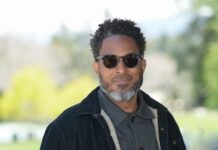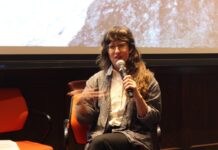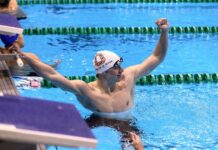Three vice presidents have announced their departures since the fall: Barbara Avery, dean of students and vice president of student affairs; Shelby Radcliffe, vice president for institutional advancement; and Jorge Gonzalez, dean of the college and vice president for academic affairs. Although the searches for their replacements are on schedule, these vacancies will not likely be filled until the summer of 2017.
According to Marsha Schnirring, chief of administrative affairs for the office of the president, the potential impact of three empty vice president positions have been mitigated by the appointment of three experienced interim vice presidents. President Jonathan Veitch announced Biology Professor Kerry Thompson as the interim dean of the college and vice president for academic affairs last Thursday; Senior Advisor to the President Elizabeth Kennedy became the interim vice president for institutional advancement Nov. 30, 2015; and Avery announced Senior Associate Dean of Students Erica O’Neal Howard as acting dean of students Sept. 30, 2015.
“In terms of the day-to-day business, because the interims come from within the college themselves and have been functioning at the usually senior level within their organization, there’s usually not a lot of impact on the institution,” Schnirring said.
In his Thursday announcement email, Veitch wrote that Thompson will be confirmed by the board of trustees at their April meeting.
“I am humbled by the appointment as the interim dean at a college that has so many outstanding scholars who ably demonstrate their passion as teachers, scholars, mentors and committed citizens of the college on a daily basis,” Thompson said via email.
Thompson pointed to the biology department’s size and commitment to academic diversity, as it overlaps with the kinesiology, chemistry and biochemistry departments and recruits faculty with a range of experience, to illustrate how his former role as a professor had prepared him for administrative leadership.
“The decisions that will be made by the leadership of the college over the next two or three years, in my view, will have important implications for determining whether we are going to create an institution that truly fosters equity and excellence at every level, and truly aspires to be a leader among our peers, or an institution that will be complacent with the alternative,” Thompson said via email.
Thompson, who will have to stop teaching to assume the vice president position, said that he is willing to make the sacrifice — though he plans to hold off on the decision to pursue the position permanently until he can determine how well he fits the role.
On the other hand, Kennedy explained that her interim vice presidency is strictly temporary, as she prefers her old position in Major Gifts and initiatives. She remains committed to leading institutional advancement to achieve the 2016 fiscal year fundraising goals, as well as the $20 million combined goal of Major Gifts and the Annual Fund.
“The fundraising priorities and goals have not changed, and it is my goal that, even in this time of change, we can accomplish all we are charged with,” Kennedy said via email.
Howard, too, has proceeded with projects under the Student Affairs’ sub-departments of Student Life and Residential Education and Housing Services. She has pursued updates to first-year orientation, themed housing, disability services, strategic enrollment and residence hall heat management. She is also working to address Oxy United for Black Liberation’s demands and said she would release a campus-wide update in the future.
“Many changes have already been made, such as the permanent appointment of Dr. Jonathan Grady as Assistant Dean for Intercultural Affairs and increased programming budget as well as division-wide diversity training in January,” Howard said via email. “There is a Campus Safety Advisory Committee at work this term that will make recommendations by the end of the spring term.”
Like Thompson, Howard said she was uncertain whether she would pursue her position permanently.
After off-campus interviews this week, final candidates for the institutional advancement position will visit campus March 22 and 23. According to Schnirring, in the best case scenario an offer will be made by early April. For the dean searches, Schnirring hopes that the offer will be made late in the fall semester. As some candidates have contracts at other institutions, it is possible that the permanent vice presidents will not start until the end of next academic year — July 1, 2017. Schnirring believes that the wait is worth finding the best candidates.
“If you find the outstanding candidate, and you have to wait a few extra months for them to come onboard, generally that’s fine with us,” Schnirring said.
At the vice presidential level, Veitch is the hiring manager who will make the final decision. Still, there are numerous steps in the process before the candidates reach him.
“We are working to complete each search as quickly as we can while ensuring that we follow a process that brings us the best possible candidates,” Veitch said via email.
The first step at the vice presidential level is choosing an external search firm. According to Schnirring, the institutional advancement search is working with Isaacson, Miller. Meanwhile, the two dean searches will use Witt/Kieffer, the same firm used for the chief diversity officer search. The administration decided on each firm based on the vacant position and the firms’ areas of expertise. Once selected, the firm helps to craft a position description, builds a candidate pool, advises the search committee, facilitates interviews and communicates Veitch’s final offer.
Schnirring explained that the second step is establishing the on-campus search committee. The committee helps the firm develop a position description, reviews applicants, interviews semi-finalists off-campus, recommends finalists and provides the hiring manager with feedback. This process differs depending on whether the search has an expedited timeline. For the institutional advancement search, the administration wanted to fill the position immediately. As such, a working group helped the firm narrow a pool of 50–60 candidates before a search committee was established in February. In contrast, the CDO search committee reviewed the entire applicant pool.
The institutional advancement committee is the only search committee established thus far. Once the dean search committees are created, Schnirring hopes that the Witt/Kieffer firm will work with them to build the position description in late March, before graduation preparations. The firm will then build a candidate pool over the summer.
According to Schnirring, the committees’ membership reflects the position’s relevance to the college’s constituencies. For example, as the institutional advancement committee works more with the board of trustees than student affairs, the committee is composed of three faculty members, three administrators, three trustees and one student. The dean of students and dean of the college committees will involve more students and more faculty members, respectively.
The third step is off-campus interviews. Schnirring explained that the firm facilitates the committee’s confidential interviews with the semi-finalists. The committee then recommends which final candidates will visit campus. Once on campus, the applicants meet with constituents and participate in forums, such as the events institutional advancement finalists will participate in this week. Campus feedback eventually goes to the hiring manager, who will make the final offer.
Yet this process does not end with the job offer. At the vice presidential level, the college bylaws require the board of trustees to affirm the accepted candidate. Negotiations then begin over details like the candidate’s start date and salary. According to Schnirring, if there is a change of heart on either side and no strong second choice, the search is declared a failure and must begin again.
Though acknowledging that the process is lengthy and complex, Schnirring sees the departures as positive opportunities.
“We’re always sorry to see good colleagues leave the institution, but at the same time it always presents us with new opportunities, and that’s always very exciting to be part of a dynamic institution,” Schnirring said.
![]()































